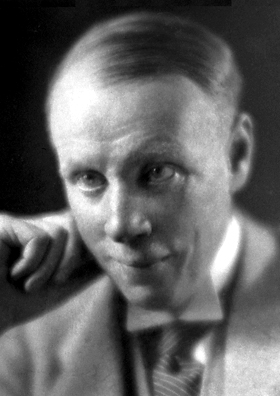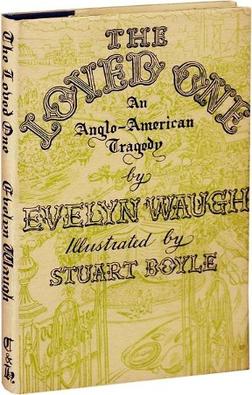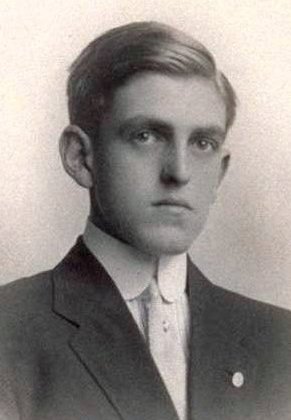
Harry Sinclair Lewis was an American novelist, short-story writer, and playwright. In 1930, he became the first author from the United States to receive the Nobel Prize in Literature, which was awarded "for his vigorous and graphic art of description and his ability to create, with wit and humor, new types of characters." Lewis wrote six popular novels: Main Street (1920), Babbitt (1922), Arrowsmith (1925), Elmer Gantry (1927), Dodsworth (1929), and It Can't Happen Here (1935).

Edith Newbold Wharton was an American writer and designer. Wharton drew upon her insider's knowledge of the upper-class New York "aristocracy" to portray, realistically, the lives and morals of the Gilded Age. In 1921, she became the first woman to win the Pulitzer Prize for Fiction for her novel The Age of Innocence. She was inducted into the National Women's Hall of Fame in 1996. Her other well-known works are The House of Mirth, the novella Ethan Frome, and several notable ghost stories.

Babbitt (1922), by Sinclair Lewis, is a satirical novel about American culture and society that critiques the vacuity of middle class life and the social pressure toward conformity. The controversy provoked by Babbitt was influential in the decision to award the Nobel Prize in Literature to Lewis in 1930. The novel has been filmed twice, once as a silent in 1924 and remade as a talkie in 1934.

The Loved One: An Anglo-American Tragedy is a short satirical novel published in 1948 by British novelist Evelyn Waugh about the funeral business in Los Angeles, the British expatriate community in Hollywood, and the film industry.

The Sun Also Rises is the first novel by the American writer Ernest Hemingway. It portrays American and British expatriates who travel from Paris to the Festival of San Fermín in Pamplona and watch the running of the bulls and the bullfights. An early modernist novel, it received mixed reviews upon publication. Hemingway biographer Jeffrey Meyers writes that it is now "recognized as Hemingway's greatest work" and Hemingway scholar Linda Wagner-Martin calls it his most important novel. The novel was published in the United States in October 1926 by Scribner's. A year later, Jonathan Cape published the novel in London under the title Fiesta. It remains in print.

Arrowsmith is a novel by American author Sinclair Lewis, first published in 1925. It won the 1926 Pulitzer Prize. Lewis was greatly assisted in its preparation by science writer Paul de Kruif, who received 25% of the royalties on sales, although Lewis was listed as the sole author.
Winnemac is a fictional U.S. state invented by the writer Sinclair Lewis. His novel Babbitt takes place in Zenith, its largest city. Winnemac is also a setting for Gideon Planish, Arrowsmith, Elmer Gantry, and Dodsworth.

The Age of Innocence is a novel by American author Edith Wharton, published on 25 October 1920. It was her eighth novel, and was initially serialized in 1920 in four parts, in the magazine Pictorial Review. Later that year, it was released as a book by D. Appleton & Company. It won the 1921 Pulitzer Prize for Fiction, making Wharton the first woman to win the prize. Though the committee had initially agreed to give the award to Sinclair Lewis for Main Street, the judges, in rejecting his book on political grounds, "established Wharton as the American 'First Lady of Letters'". The story is set in the 1870s, in upper-class, "Gilded Age" New York City. Wharton wrote the book in her 50s, after she was already established as a major author in high demand by publishers.

Sidney Coe Howard was an American playwright, dramatist and screenwriter. He received the Pulitzer Prize for Drama in 1925 and a posthumous Academy Award in 1940 for the screenplay for Gone with the Wind.

A Place in the Sun is a 1951 American tragedy film based on the 1925 novel An American Tragedy by Theodore Dreiser and the 1926 play, also titled An American Tragedy. It tells the story of a working-class young man who is entangled with two women: one who works in his wealthy uncle's factory, and the other a beautiful socialite. Another adaptation of the novel had been filmed once before, as An American Tragedy, in 1931. All these works were inspired by the real-life murder of Grace Brown by Chester Gillette in 1906, which resulted in Gillette's conviction and execution by electric chair in 1908.

Elizabeth Hadley Richardson was the first wife of American author Ernest Hemingway. The two married in 1921 after a courtship of less than a year, and moved to Paris within months of being married. In Paris, Hemingway pursued a writing career, and through him Richardson met other expatriate American and British writers.

Isabella Stewart Gardner was an American art collector, philanthropist, and patron of the arts. She founded the Isabella Stewart Gardner Museum in Boston.
Coningsby, or The New Generation is an English political novel by Benjamin Disraeli, published in 1844.
This is a list of bestselling novels in the United States in the 1920s, as determined by Publishers Weekly. The list features the most popular novels of each year from 1920 through 1929.
Marjorie Muir Worthington was an American writer of novels and short stories.

Dodsworth is a 1936 American drama film directed by William Wyler, and starring Walter Huston, Ruth Chatterton, Paul Lukas, Mary Astor and David Niven. Sidney Howard based the screenplay on his 1934 stage adaptation of the 1929 novel of the same name by Sinclair Lewis. Huston reprised his stage role.

Dodsworth is a three-act play by Sidney Howard based on the 1929 novel by Sinclair Lewis. Through the title character, it examines the differences between American and European intellect, manners, and morals.
William Gardner Smith was an American journalist, novelist, and editor. Smith is linked to the black social protest novel tradition of the 1940s and the 1950s, a movement that became synonymous with writers such as Richard Wright, Ralph Ellison, Willard Motley, and Ann Petry. Smith's third book, South Street (1954), is considered to be one of the first black militant protest novels. His last published novel, The Stone Face (1963), in its account of the Paris massacre of 1961, "stand[s] as one of the few representations of the event available all the way up until the early 1990s".

The Man Who Knew Coolidge is a 1928 satirical novel by Sinclair Lewis. It features the return of several characters from Lewis' previous works, including George Babbitt and Elmer Gantry. Additionally, it sees a return to the familiar territory of Lewis' fictional American city of Zenith, in the state of Winnemac. Presented as six long, uninterrupted monologues by Lowell Schmaltz, a travelling salesman in office supplies, the eponymous first section was originally published in The American Mercury in 1927.

The 1930 Nobel Prize in Literature was awarded to the American novelist Sinclair Lewis (1885–1951) "for his vigorous and graphic art of description and his ability to create, with wit and humour, new types of characters." He is the first American Nobel laureate in literature.
















